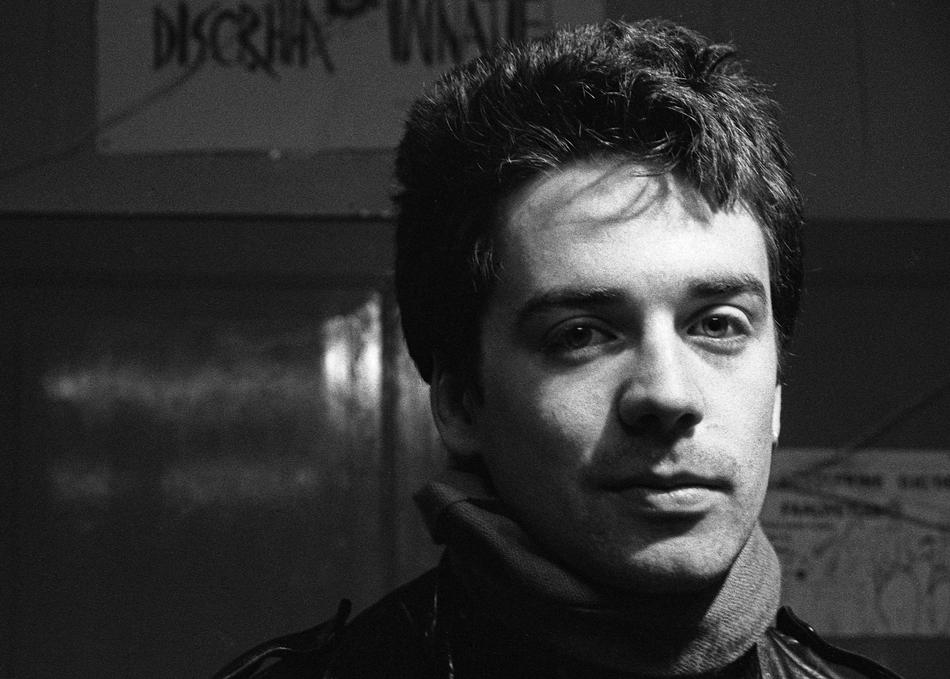Julia Parnell is an award-winning producer and documentary director from New Zealand. Her work has been chosen for festivals in New Zealand and Australia such as DocEdge, NZIFF and MIFF, as well as around the world at SXSW, Tampere, Palm Springs, Bermuda, Rhode Island, and Puchon. Her credits include “Wilbur: The King in the Ring” and “Prime Rocks: The New Sound of Country.”
“The Chills: The Triumph & Tragedy of Martin Phillipps” premiered at the 2019 SXSW Film Festival on March 12.
W&H: Describe the film for us in your own words.
JP: “The Chills: The Triumph & Tragedy of Martin Phillipps” is an intimate film that bears witness as the eccentric and gifted songwriter Martin Phillipps battles the jarring reality of his own mortality.
Combining a never-before-seen archive with an intimate current day story backed by a killer musical soundtrack, the film—alongside Martin—picks apart his lifetime of memories. As his precious items are discarded and redistributed, Martin rediscovers the story behind it all.
Journey with Martin as he learns to cope with past decisions and life-threatening repercussions. Meet a creative who is uncompromising in his vision for the music. Discover the humorous and charismatic side of a lyrical master never seen on film before.
W&H: What drew you to this story?
JP: It’s a great privilege for me to tell stories that contribute to our understanding of who we are, where we’ve been, and what we might become, but it is music stories that really ignite my passion and drive to create. Characters who decide to stand on stage and bare their souls through song, as well as the effect they have on their listeners, fascinate me.
Martin Phillipps and The Chills are among the founding pioneers of the iconic “Dunedin Sound,” a groundbreaking musical movement that inspired many seminal musicians around the world and helped usher in a newfound sense of alternative culture in New Zealand. So when I walked in to the first meeting with Martin, I was immediately struck by a desire to understand this man. He was in the rebirth of his career, with the release of the first Chills album in over 20 years, but at the same time he seemed very vulnerable. I later learned how unwell he really was.
W&H: What do you want people to think about when they are leaving the theater?
JP: I hope people float out of the theater on the music, having realized or remembered the gift of The Chills’ songs.
Once they have done that, I want people to consider the complexity of the human condition. We all have crises, but how we deal with the aftermath is just as interesting as the crisis itself, and this unique man certainly has an interesting way of dealing with the many struggles and triumphs that make up his life!
W&H: What was the biggest challenge in making the film?
JP: Over the two years of filming with Martin Phillipps, he has faced some extreme highs and lows while also being completely honest and open about his failings. So I think that managing how far and deep we could go on any given day, while considering his health and emotional wellbeing has been the biggest challenge of the film.
W&H: How did you get your film funded? Share some insights into how you got the film made.
JP: As Kiwis, we are incredibly privileged to have government funding for documentaries, and we are incredibly proud of the funding we have secured from The New Zealand Film Commission and New Zealand On Air.
The remainder was achieved through a New Zealand television pre-sale and private equity, plus a fabulous Kickstarter Campaign. Thanks to all those people!
W&H: What inspired you to become a filmmaker?
JP: Ever since I can remember, I have been curious about life, the world, cultures, and why we as humans behave the way we do. This curiosity has led me to a lifelong commitment to documentary storytelling.
From filming Iraqi refugees in Syria to rock music legends to recidivist offenders, a drive to understand people and different communities has taken me into many diverse worlds, all the while fueling the fire to find and share new stories.
W&H: What’s the best and worst advice you’ve received?
JP: The best advice: “‘Why?’ is the sharpest weapon of a documentary storyteller. Use it wisely.”
Worst advice: “Focus on producing.” I think this is something women are often encouraged to do, but the worst advice can give you strength. This resistance pushed me to realize the full potential of my creative vision and prove myself as a director.
W&H: What advice do you have for other female directors?
JP: Always work with crew that respects your overall vision, and don’t let the financiers tell you any different.
W&H: Name your favorite woman-directed film and why.
JP: “Stories We Tell” by Sarah Polley. It is a brave film, intimate and intriguing.
W&H: It’s been a little over a year since the reckoning in Hollywood and the global film industry began. What differences have you noticed since the #MeToo and #TimesUp movements launched?
JP: In a time when we are fighting to bring more women to creative roles within film industry, here in New Zealand there has definitely been positive progress in support of female directors and for putting in place practices to combat harassment. There is still a very long way to go to reach equality. It’s going to be a long battle, but I’m hopeful.







